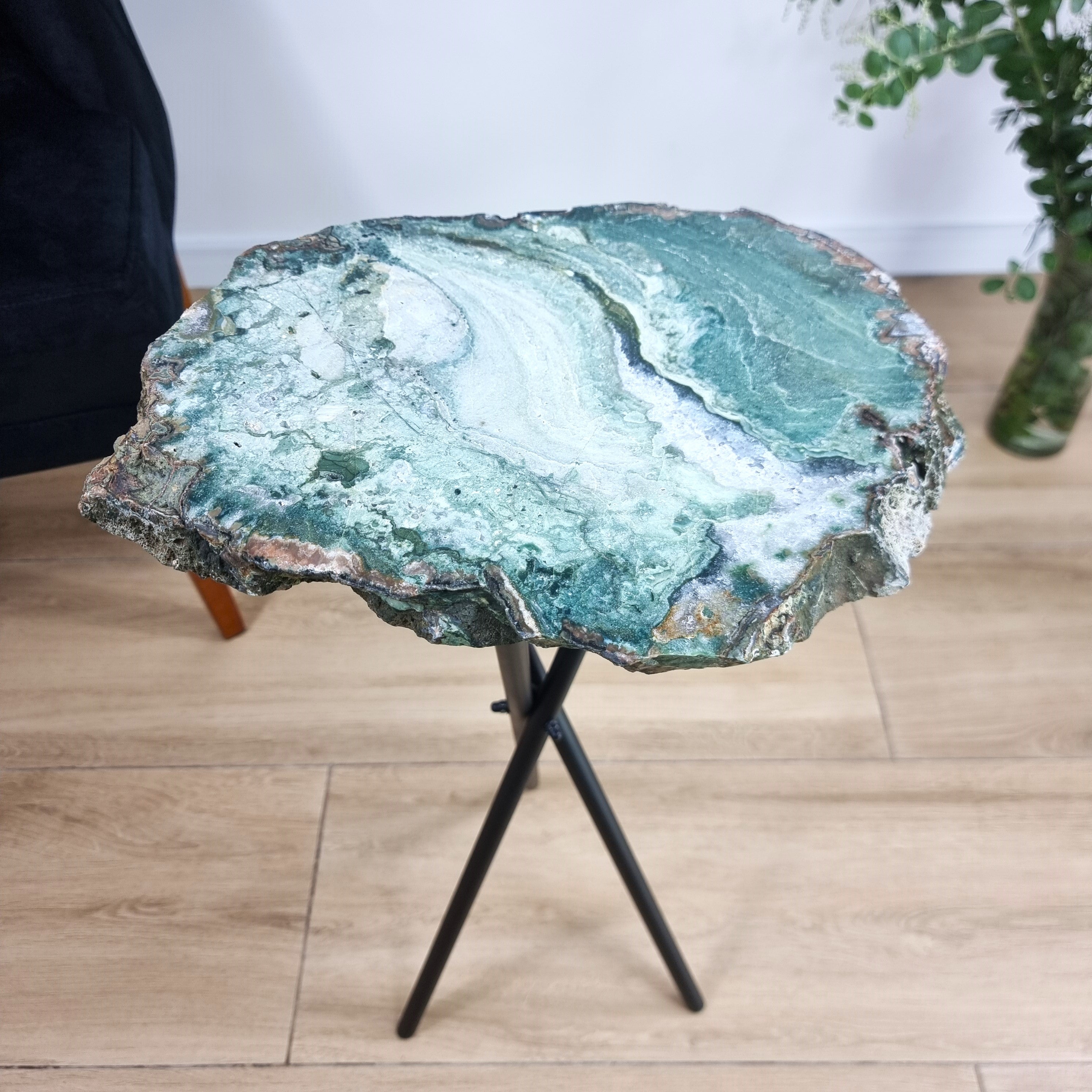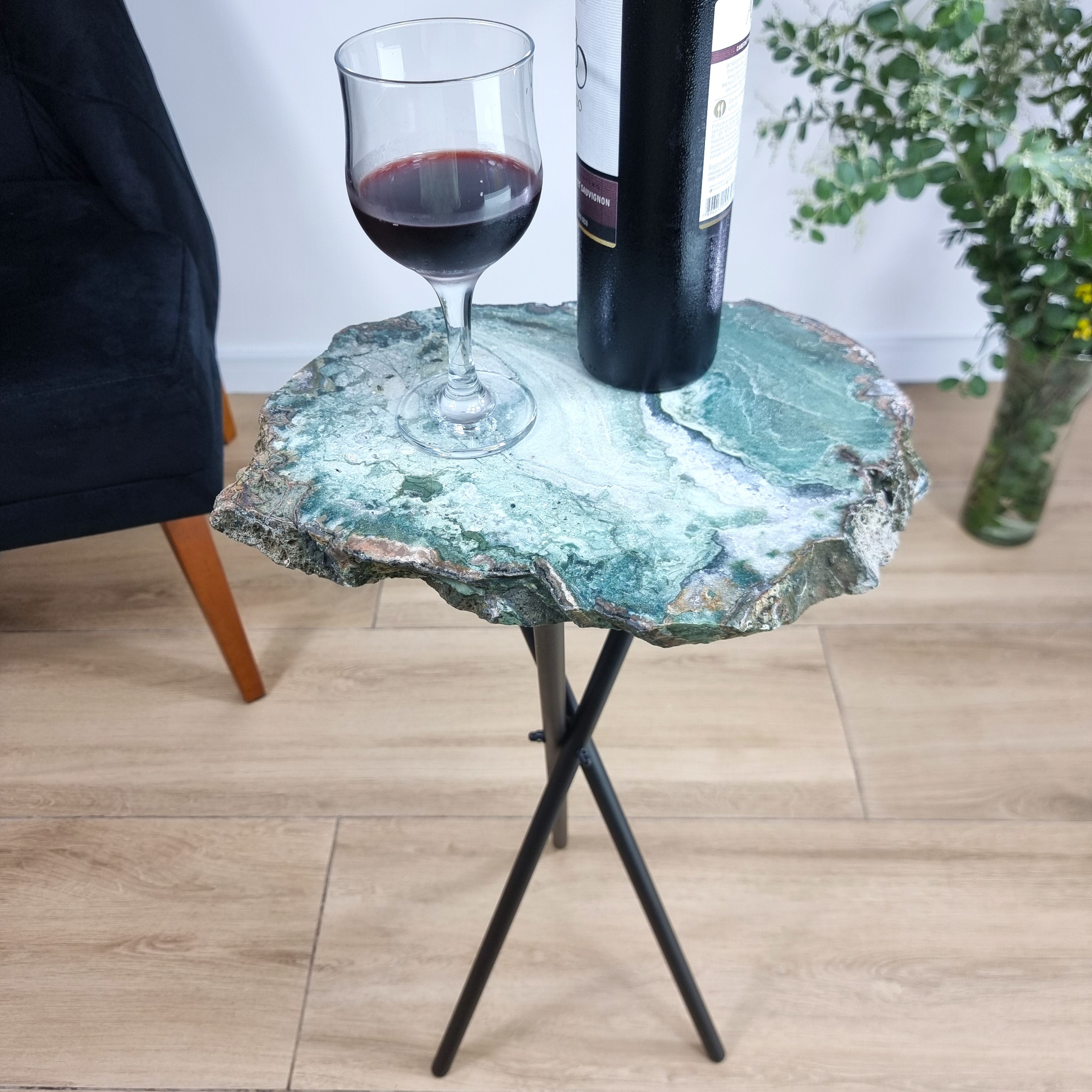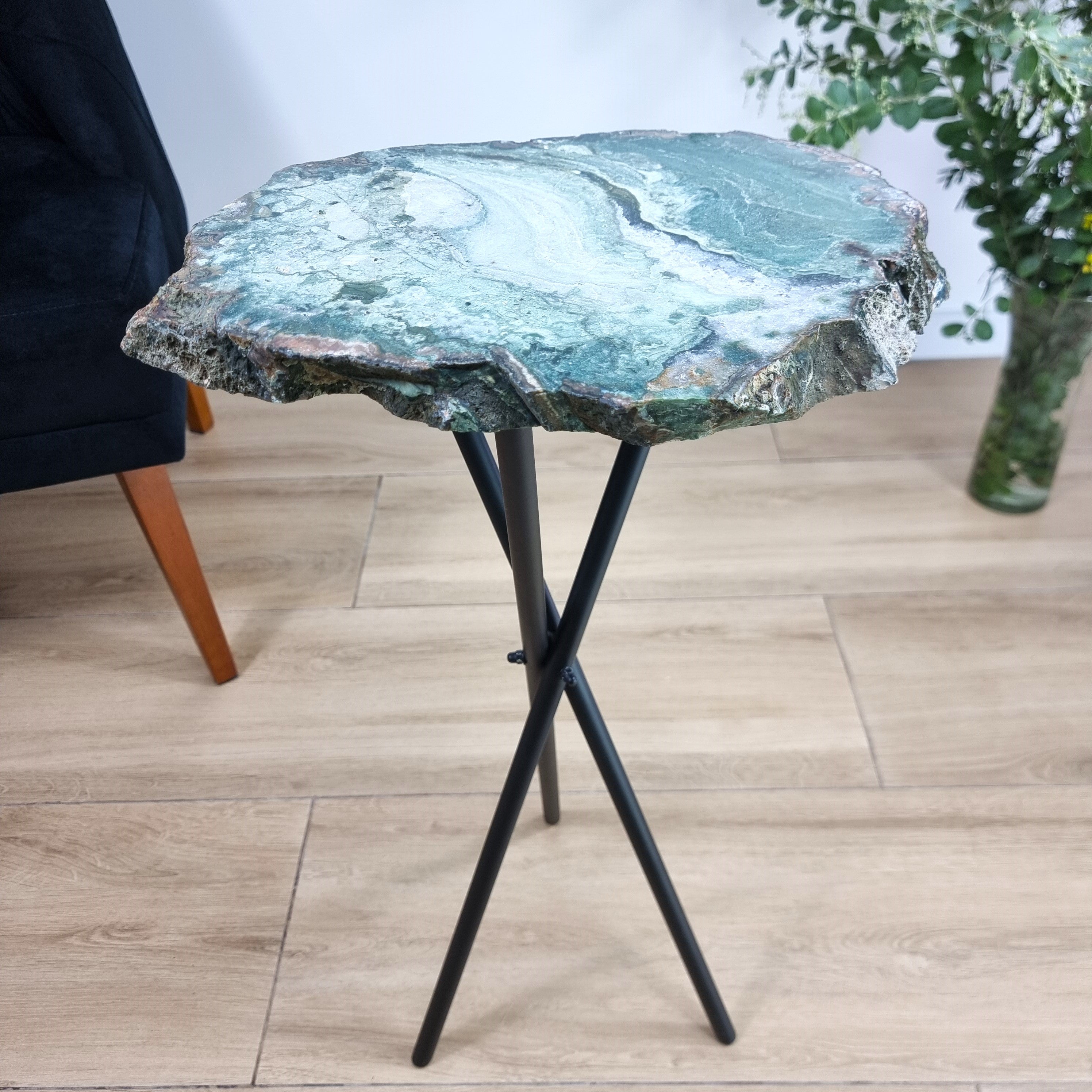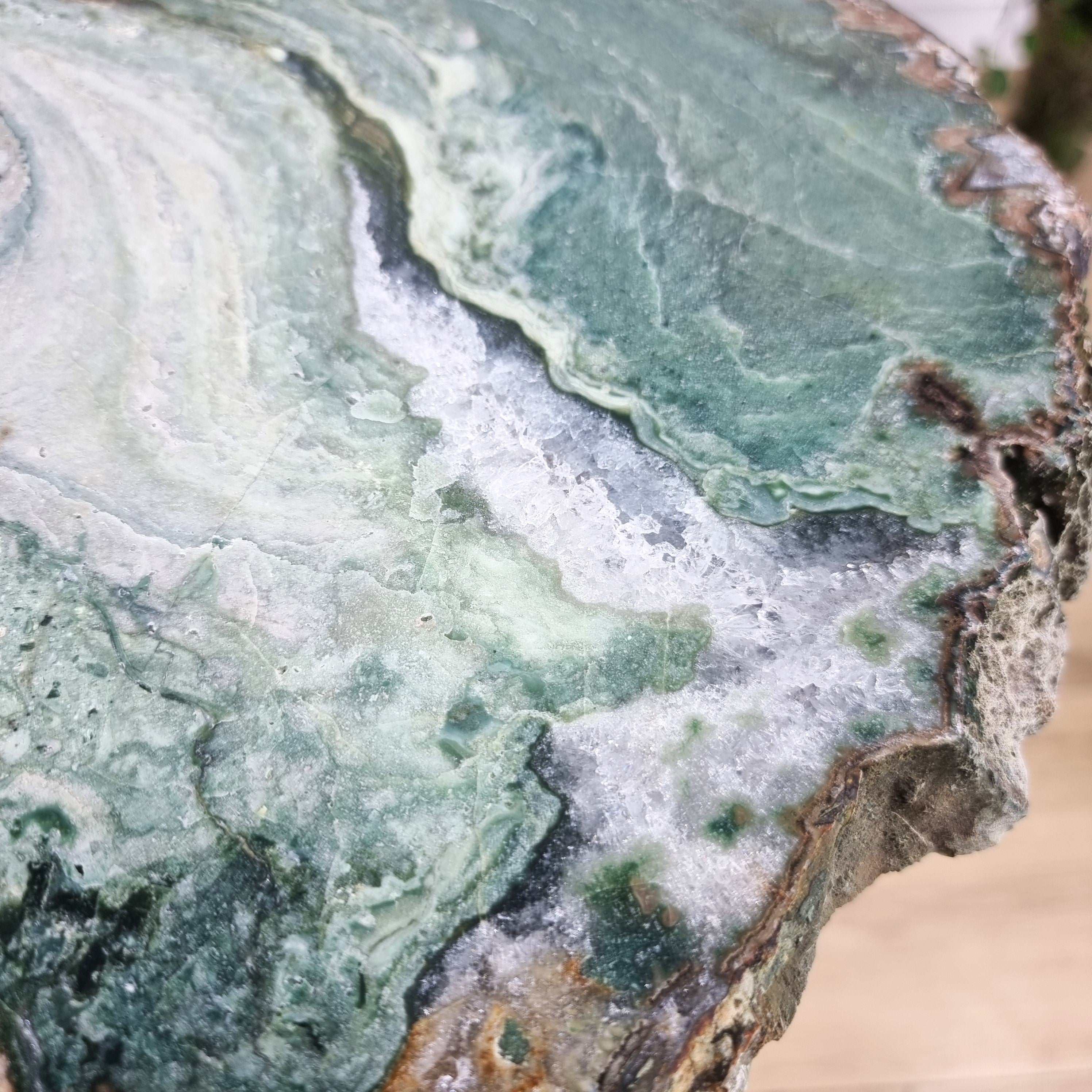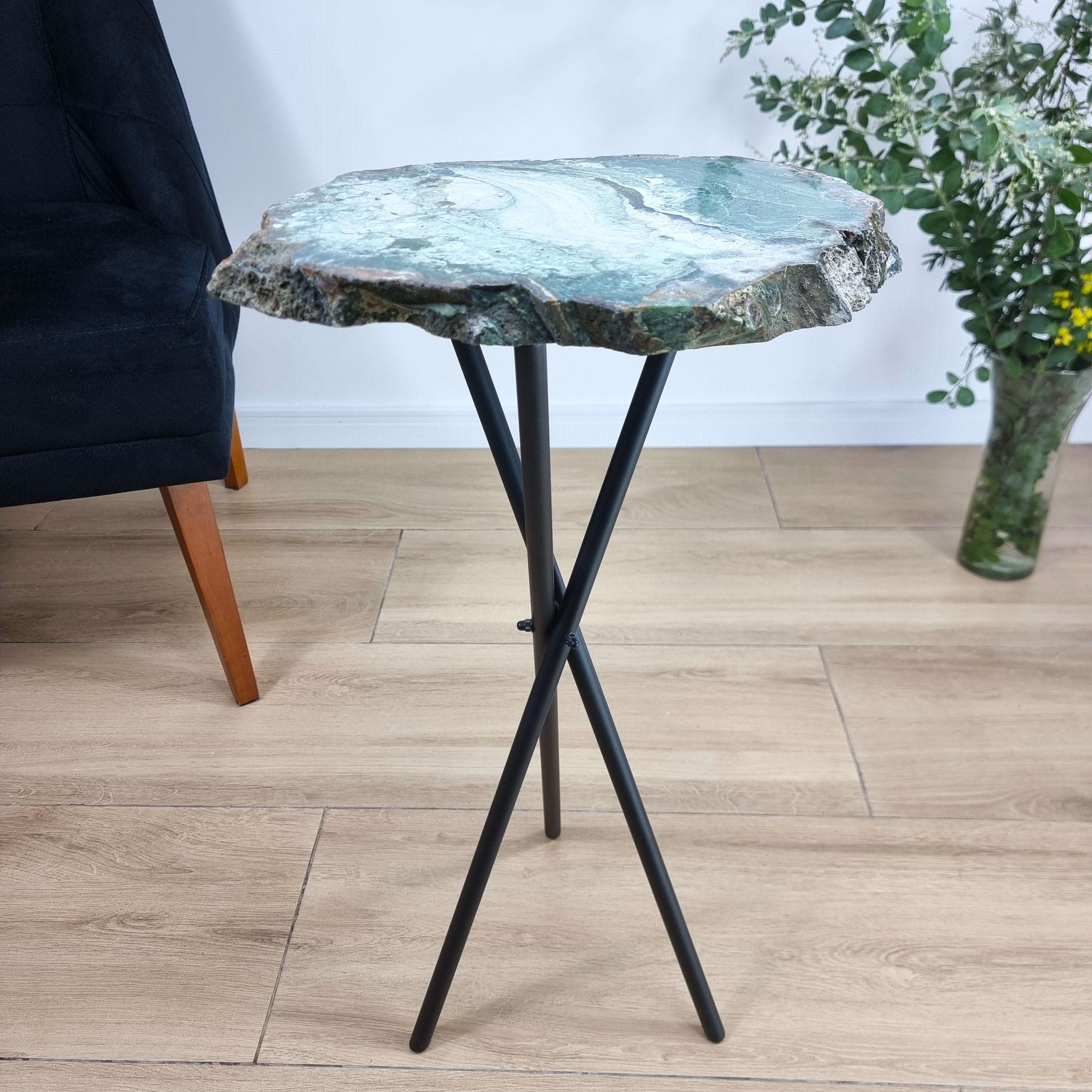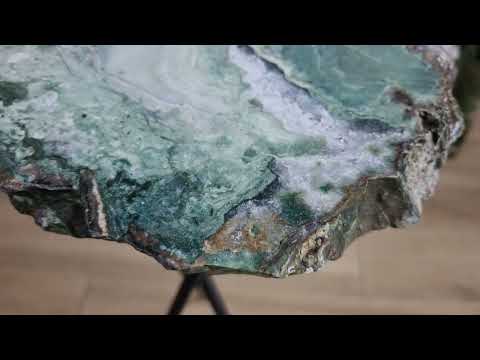Descripción
This product was extracted in strict compliance with Brazilian environmental legislation. Production processes are compensated by Instituto Mundo Verde. See here the executed projects!
Technical Specifications
- Overall Size: 23.6"H x 13.1”L x 10.3"W
- Slab Thickness: 1.18" / 3,00 cm /
- Slab Weight: 9.26 lbs / 4,20 kg
- Weight with Base: 11.46 lbs / 5,20 kgs
- Serial Number: 1305001 0025
Important:
- - Authentic from Brazil;
- - Free shipping to 48 states of the lower USA region;
- - Worldwide Shipping Available;
- - Product delivered from Brazil within 7 to 10 days, shipping paid;
- - Our American company has 3 warehouses. USA, BRAZIL and PORTUGAL.
STOCKPHOTO. Handmade product. These slices vary in size and characteristics due to being unique and pieces.
MEANING OF AGATE
This stone has great healing power, works with the chakras and acts according to the color of each type. In the general sense, in children it is used as protection. Tones and invigorates the body. It helps to awaken and open your interior. Crystal therapists say that agate serves as an energizer and blood purifier and helps people who are distracted and off-center. It is believed that agate placed on the spleen chakra stimulates creative expression. It is linked to the Earth, helps with physical and mental balance, improving self-confidence and improving self-esteem. It attracts inheritances, protects against theft, helps with childbirth, attracts the opposite sex, protects against negative energies, attracts money, good jobs, strengthens the heart, gives courage, is an antidote against poisons. Agate is said to lower fevers and even have the properties of refreshing water. Sharpens vision, illuminates the mind, grants eloquence, assists in discovering treasures, increases vitality, vigor, courage, longevity, healing and protection.
It presents curved or irregular bands of different colors, tones or transparencies of the same color, such as brown, red, white, gray and grayish blue. Very vivid colors are almost always the result of treatment to enhance the natural color. The colors and shapes are so varied that a collection of agate stones would look like a collection of many different stones. But be careful: almost most of the colored agates we see today are artificially dyed. They are found as nodules in ancient effusive rocks, poor in cilicic acid and secondarily, in clays and gravels. They form from the crystallization of silica in the back walls of obstructed rock cavities. Due to the different coloring, filiosity and porosity, several overlapping layers of color are formed. The inner part of agate druses is often covered with rock crystal, amethyst or smoky quartz. Depending on the design of the layers, it receives different names, striped or layered agate, starry, walled, landscape, mossy, etc.
AGATE SYMBOLISM
The name agate comes from the ancient river Achates, today known as Dirillo, whose source is close to Monte Lauro, in Sicily (Italy). 3,000 years ago, agate was already crafted in Egypt in the form of seals, stones for rings, gems and vessels. It was also used as an amulet, to protect against lightning and storms.

